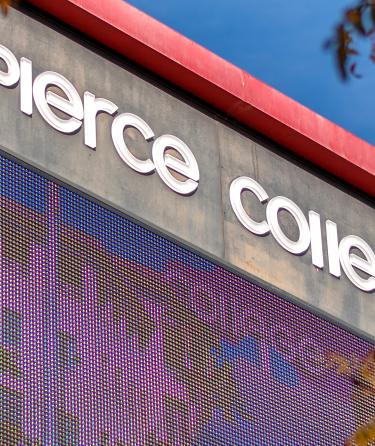ELECTRICIAN TRAINEE
Legislation passed in 1999 requiring all electricians who work for a C-10 electrical contractor to be certified by the state of California. Regulations from that legislation were put in place in 2002, setting deadlines for all categories of electricians. Many of those deadlines have already passed.
To continue to work as an electrician after the deadline has passed, a person must be one of the following: certified by having taken and passed the exam or an apprentice in a state approved program or an electrician trainee.
If a person wants to perform electrical work for a C-10 contractor and does not yet qualify to take the certification exam because of lack of work experience or related instruction, can do so legally by registering as an electrician trainee.
Reference: Electrician Certification Program
Why Enroll in an Electronics Program at Pierce College for Electrician Certification?
Disclaimer: The following is unofficial and any information given here is only an attempt at explaining how and why an Electronics program became a certified provider under the law.
Legislation has passed that requires persons to be certified electricians. Even though the law was passed some time ago, apparently implementation of the law has been delayed (extended). Now it seems that by January 2007, there will be no more extensions. Realizing that thousands of electricians will be affected by the law, and there was going to be a tremendous need for "approved schools," in the San Fernando Valley, the Pierce College Electronics Program went through the extensive process of becoming "approved." One of the goals of the legislation is to improve the education of electricians.
So how does an electronics class meet the needs of electrician trainees?
What we do not teach:
- We do not teach the electrical "code."
- We do not try to directly teach to pass an exam (the memorize and pass method).
- We do not teach electrical construction techniques such as conduit bending, mechanical tools usage, wire pulling, cable splicing, etc.
What we do teach:
- Fundamental electrical theory called electronics or electricity, its all the same. This includes Ohm's Law, voltage, current, resistance, series and parallel circuits, magnetics, relays, solenoids, etc.
- Calculations using Ohm's law and the power equations utilizing a scientific calculator.
- Hands on laboratory use of digital multimeters, power supplies, computers, and in advanced courses, signal generators, oscilloscopes, etc.
- AC fundamentals including inductance, capacitance, transformers, etc.What class should I begin with?
The beginning classes in our program are Electronics 4A (lecture) and 4B (lab) taken concurrently. Courses that are approved for electrician trainees include:
- Electronics 4A & 4B Fundamentals of Electronics I
- Electronics 6A & 6B Fundamentals of Electronics II
- Electronics 8A & 8B Electron Devices
- Electronics 72A & 72B Digital Circuits
Contact Us
Contact
Fayez Nima
Electronics Professor
Email: @email
Phone: (818) 710-2224
Lilach Farhy
Electronics Lab Tech
Email: @email
Phone: (818) 710-4433
Farahnaz Nezhad
Electronics Professor
Email: @email
Phone: (818) 719-6480
